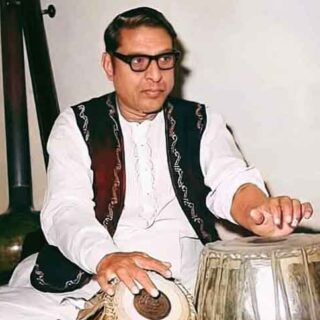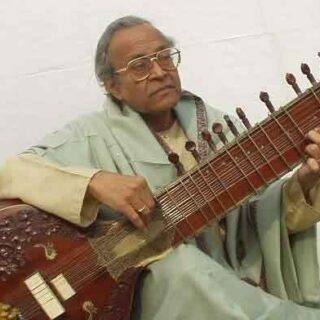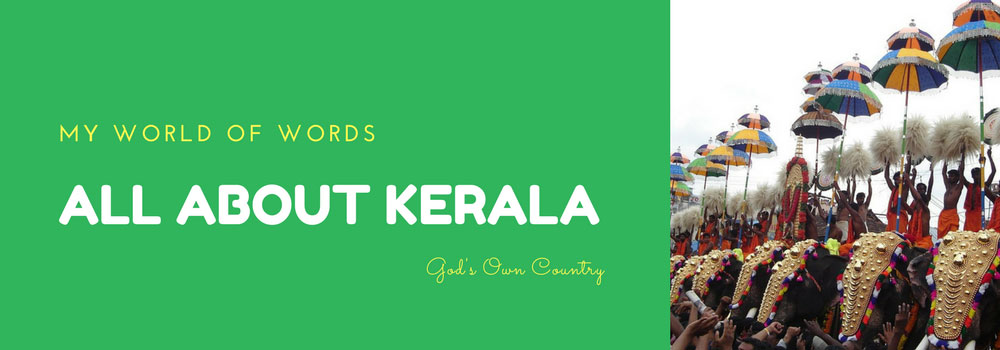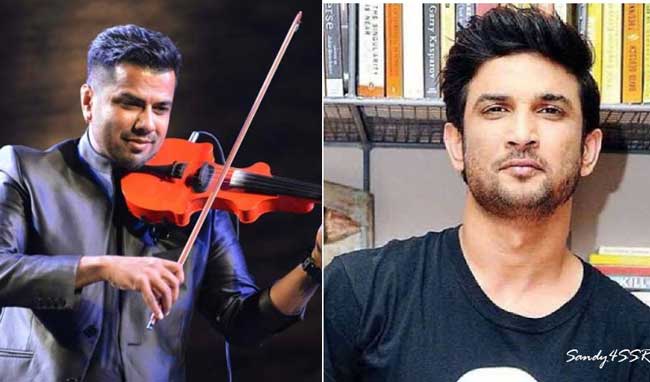Do you know which is the best verse of epic Ramayana?
Last couple of months, a lot have been discussed about the movie, Adipurush , Ramayana & Lord Rama. Ramayana reading month is also coming. Let me ask you one simple question. Hinduism’s oldest epic – Ramayana contains 24,000 verses or more. Which is its greatest stanza/verse, Do you know? OK, let me tell you an interesting story which many of you are not familiar with. But for Malayalis, it forms an integral part of our Hindu tradition.

The story of Vararuchi and the best lines of Ramayana
It happened in the court of King Vikramaditya. His court decorated with 9 jewels including the scholar Vararuchi. There are multiple references about Vikramaditya & Vararuchi, & I am also confused. I am not proficient enough to clear it. Ok, let’s listen the story first.
One day King Vikramaditya asked in his court, which is the greatest sloka (verses) of Ramayana. He also announced a prize money of 1000 gold coins. Vararuchi, the greatest scholar started searching for its answer. It became his prestigious issue too. In another version, King ordered him to find it & was given a time period too. The scholar was well versed in Ramayana, who boasted his intelligence & bi-hearted each and every single line of the epic. He could recite it too. Hence the king decided to tested his intelligence, maybe to break his pride. Yes, we always know there is no written documentation of such stories in the ancient ages & they have been passed over from generation to generation. Anyways, Vararuchi set for a journey to find its answer. Vararuchi was repeatedly scanning all the verses in his mind, yet not able to find the greatest lines.
The final day came & still he was not able to find it. He was tired, reached a banyan tree in the evening & started sleeping beneath it. It was getting dark. We all know, as per our beliefs, holy spirits reside in banyan trees, can also be called Vanadevata or guards. Two of them were talking while Vararuchi eavesdropped it, pretending to sleep. Their convos were like this, and one of them said, “A girl was born in a pariah caste today (low caste) & the man who is destined to marry her, is sleeping beneath this banyan tree. He is such a fool that he doesn’t even know the meaning of ‘Maamvidhi‘”. As the Brahmin was well-versed with each single line of the epic, he could easily spot the stanza the Vanadevata was mentioning about.
Next day, ie. the last day, he reached the court and recited the stanza before the king. Vikramaditya was pleased with Vararuchi’s explanation & gave him the prize money. But what Vararuchi did later was so cruel.
Ramam Dasaratham viddhi, Maam viddhi Janakaatmajaam

Which is the famous stanza of epic Ramayana, written by Valmiki?
“Ramam Dasaratham viddhi, maam viddhi Janakaatmajaam
Ayodhyamataveem viddhi, gaccha taatha yatha sukham”
This stanza was quoted by Lakshmana’s mother, Sumitra & it was her advice to him before exile for 14 years, accompanying Rama and Sita. A kind of advice before the farewell. Its translation is “From here on, consider Rama as Dasaratha (your father), Janaki as me (your mother), forest as your kingdom Ayodhya & set for your wonderful journey”.
This advice is still relevant in many contexts. It teaches us how to treat elders/elder brother & his wife, & how to live even in worst situations with a positive thinking. Also, how to respect elders. This verse has so many interpretations & also teaches us lessons of love, affection, duty, sacrifice etc. This stanza comes in Ayodhya Kanda, 40th chapter & is the 9th Sloka.
What happened in scholar Vararuchi’s story next?
He, with the help of the king found that newly born baby girl, stuck a nail on her head, enclosed her in a box & floated her in a river. Vararuchi was so happy that he changed the destiny. Years passed by & he moved on forgetting old things.
A few years later, while he was on a journey, he accepted the invitation of a Brahmin & stayed there at night. He accepted the invitation on condition that the Brahman had to prepare 100 curries for his meals. (In some references it’s 1000 curries & in some, 18). What I heard in childhood is 100. It was an impossible task to make 100 curries in short time. Brahmin had one daughter & she calmed her father saying, she will make it. She prepared ginger curry & served Vararuchi with ginger curry and boiled rice. When he asked, she replied that, Ginger is equivalent to 100 dishes. Vararuchi was impressed by her knowledge & asked her hand. Her father was so happy, & he married them off.
Days passed by. One day Vararuchi happened to see a mark on her head & asked her its story. She told that she is an adopted daughter of that Brahmin, & when he got her by river bank as a baby, a nail was stuck on her head. Suddenly Vararuchi recollected whole events & to his shock, realized it’s the same girl who he float years back. Yes, destiny can’t be changed. Here starts another interesting chapter of Vararuchi’s story, an integral part of Kerala culture.
12 Children born to a Paraya woman
The whole story is included in ‘Aithihyamala‘, a collection of 100s of century-old tales & legends from Kerala, authored by Kottarathil Sankunni (1855 – 1937). The most popular story of the book is definitely Vararuchi & his 12 kids born in this wedlock. It’s famously called Parayi Petta Panthirukulam which literally translates as 12 clans born to a Parayi(a lower caste woman).
After knowing the truth of his wife, Vararuchi was not able to love her like before. He was sad also. The couple set out a long pilgrimage & 12 kids were born during the journey. Soon after the first kid was born, Vararuchi enquired whether the baby had a mouth & his wife replied, “Yes”. He replied, “God will appease the one with mouth” & she was forced to abandon the newborn & they resumed their journey. It continued the same for next 10 deliveries and that mother had no other option left except to leave the child.
When the 12th baby was born, he asked the same question. In mind, Vararuchi was thinking, let she keep it. Fearing she will lose this child too, she lied, the child was born without mouth. To their surprise the child didn’t have/was born without mouth & hence it died, while the rest 11 kids survived & were brought up by people belonging to different clans. Vararuchi’s words also came true. Vararuchi consecrated the 12th child as a deity on top of a hill & they continued journey. Their story ends there & story of their kids begin at this point. The 12th child is called Vayillakkunnilappan (Hill Lord without mouth) & is still worshiped in a temple at Kadampazhipuram of Palakkad district.
Perunthachan and Naranath Bhranthan – The prominent among 12 offspring
Among rest 11 kids, Karakkalamma was the single girl child. The sons were Mezhathol Agnihotri, Pakkanar, Rajakan, Naranath Bhranthan, Akavoor Chathan, Vaduthala Nair, Vallon, Uppukottan, Paananaar and Perumthachan. Perumthachan & Naranath Bhranthan became most popular. Pakkanar’s stories are famous too. In fact all children excelled in some art or talent and were famous. Most of them led simple lives, adapting community of their foster parents. I shall conclude saying a few words about both these celebrated personalities.
Perumthachan, brought up by a carpenter family. He is widely regarded as the gigantic figure of Kerala architecture&when something is traditionally constructed, first Pooja is conducted for him to seek his blessings. This tradition is still followed. There are countless tales of his master crafts. An important figure of Kerala folklore, many great architectural pieces are attributed to him, including many temples & palaces, a famous pond too & many of his works are still puzzles. Only negative thing about his glorious life as an architect is it’s rumoured that he killed his own son in professional jealousy, by letting go his chisel from hand while his son was beneath. The chisel stuck on his neck & son died on spot. Was it an accident?
My favourite hero among 12 offsprings is Naranath Bhranthan. What a great philosopher! He was leading a very simple life too. He also had yogic powers. He was not mad, but acts like a madman. Shabbily dressed, he laughed a lot without reason & told deep philosophy. What makes him a popular figure is, every morning he takes a lot of efforts to pull a rock to the top of a hill named Rayiram Kunnu & leaves it from there. When the stone comes down he laughs loudly & claps his hand, & people call him mad. It was his daily routine.

To add he was suffering from elephantiasis in left leg. Yet with this condition he climbed the mountain everyday carrying a rock & reached there at noon, only to let it go at hilltop. To climb this mountain, a normal person requires 1.5 hours. This act of throwing stone has been often considered allegorical and has been applied for social critiquing for myriad contexts. Yes, though we strive hard throughout our life to pursue our dreams, when we go we have to leave everything here and go empty hand.
I shall conclude this post by sharing an interesting tale about Naranath Branthan (The madman of Naranam), which fascinated me since childhood. Once goddess Kali appeared before him & asked him to ask a wish. He asked, when will he die. Goddess told him the time of his death. He asked if goddess can extend his life for one more day for which she said, she can’t. Then he asked if she can reduce it by 1 day. What a thought! She said, she can’t. Then he asked if she can transform elephantiasis of his left leg to right, as it’s difficult for him to walk. What a strange wish! Really craziness at its peak! His wish was granted and goddess disappeared. He could have asked anything. But he didn’t.
Hope you have enjoyed reading. I have added a page with articles related to Karkidakom month. If you are interested in reading, click the link. Keep reading our old epics and explore new things.














Recent Comments